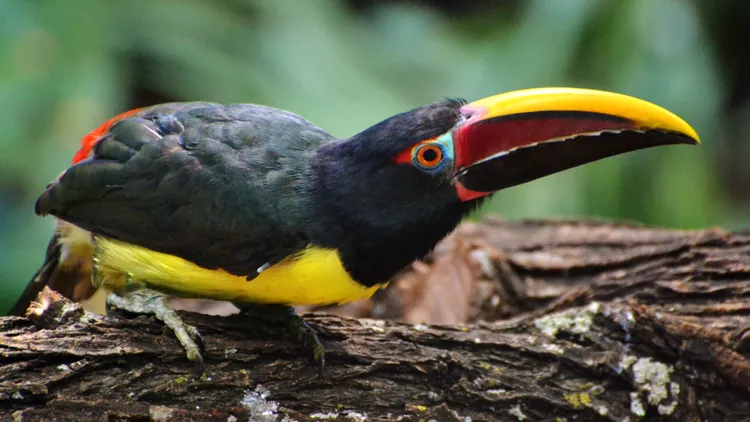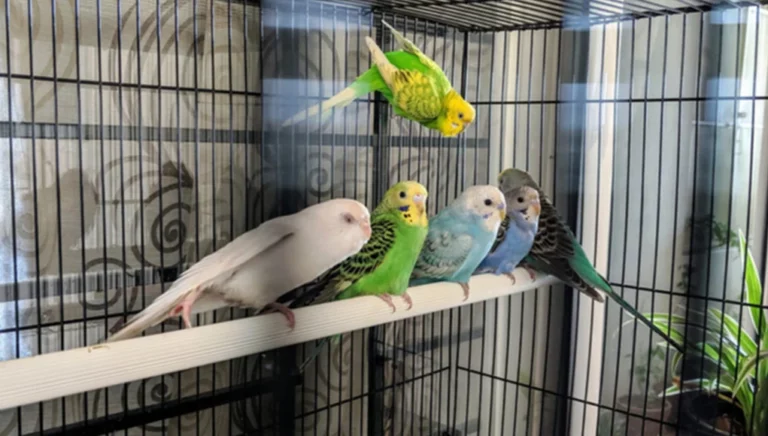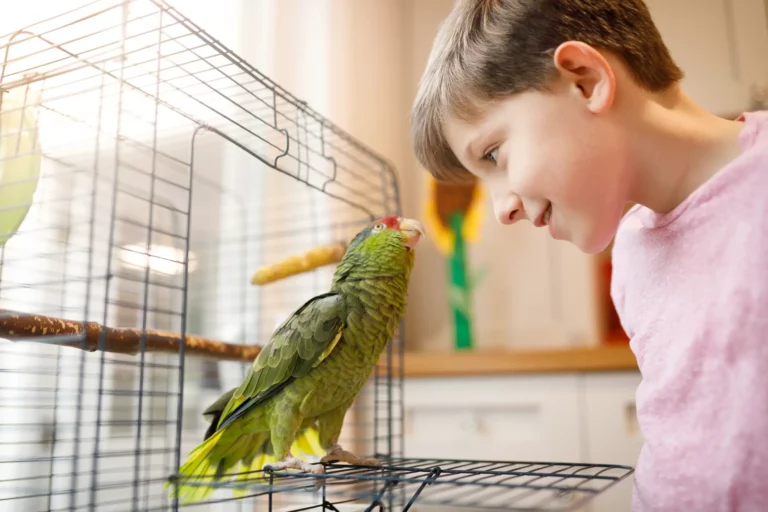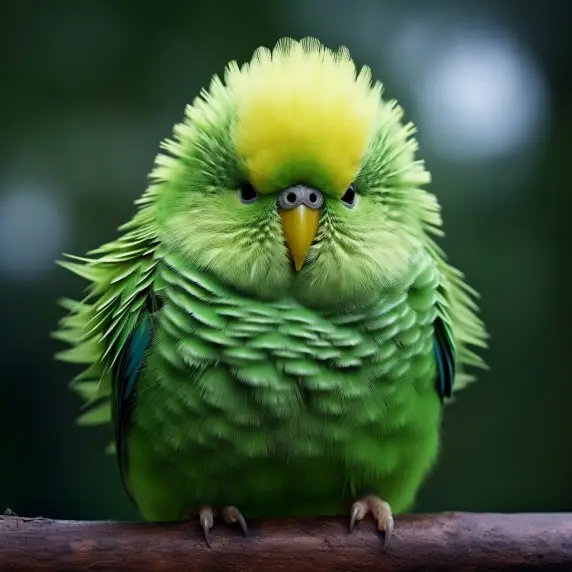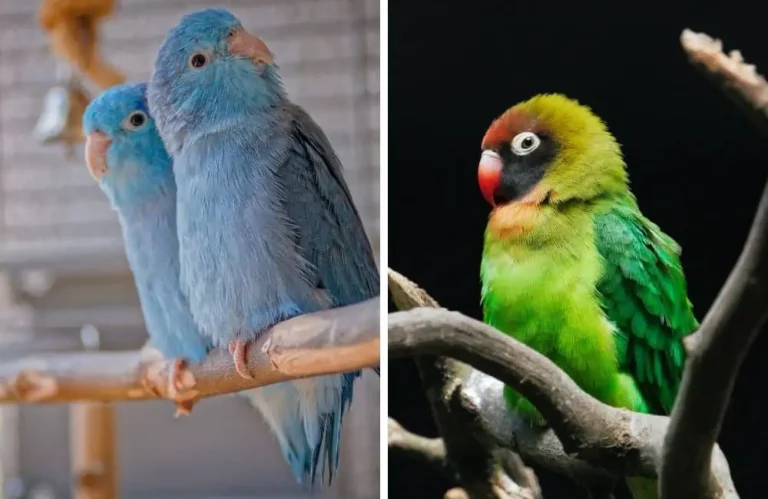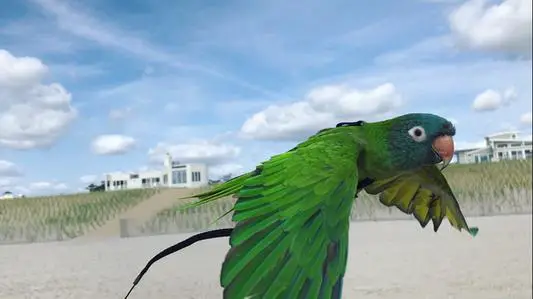7 Signs Your Bird Trusts You and How to Build Trust
When it comes to bird ownership, understanding the signs your bird trusts you is essential. Birds, especially parrots, have complex behaviors and emotions that can sometimes be challenging to decode.
Trust is a critical component of your relationship with your bird, leading to a stronger bond and better mutual understanding. This blog post will discuss in detail the signs indicating your bird trusts you, the difference between trust and mere tolerance, and ways to enhance this trust further.
Key takeaways:
- Birds show their trust in a variety of ways, often through physical gestures and vocalizations.
- Earning a bird’s trust requires time, patience, and a safe, positive environment.
- A trusting bird is more likely to engage in play and social interaction.
Recognizing Trust: The Basics

Building trust with your bird is much like building trust with any other pet; it involves mutual respect, consistency, and understanding. To gauge if your bird has trust in you, look for these basic signs:
Comfort with Close Proximity
When your bird trusts you, it won’t feel threatened by your presence. It will allow you to get close without showing signs of fear or discomfort. Some birds may even approach you voluntarily or stay calm when you are near. Remember, each bird has its own unique comfort zone.
Non-Aggressive Body Language
Birds use their bodies to communicate their feelings. When a bird trusts you, it will display relaxed body language. This might include calm eyes, relaxed feathers, and no signs of wanting to flee. Conversely, a bird that does not trust you may fluff up its feathers, open its beak threateningly, or try to move away from you.
Willingness to Play
A playful bird is a trusting bird. Birds often play by bobbing their heads, tossing toys around, or even dancing. If your bird feels comfortable playing around you, this indicates that it trusts you enough to let its guard down.
Eating from Your Hand
Feeding is a vulnerable time for birds. If a bird eats directly from your hand, it demonstrates a high level of trust. It means your bird feels safe enough around you to engage in such an intimate activity. Note that this trust must be earned over time and should not be rushed. It’s always essential to respect your bird’s pace.
Bird Behavior Decoded: Understanding Your Pet Bird
Understanding bird behavior goes beyond recognizing the obvious signs. It requires a deep dive into the nuances of bird behavior to truly understand the implications of their actions and reactions. Here are some complex behavior signs that indicate your bird trusts you:
Voluntary Interaction and Approach
One clear sign of trust is when your bird voluntarily interacts with you. This might mean your bird flies to you without being called or stays with you when it could go elsewhere. It indicates that your bird finds your company pleasant and feels secure around you.
Comfortable Grooming in Your Presence
Birds are vulnerable when they’re grooming. It’s a time when they’re focused on their feathers and not their surroundings, which can make them targets for predators. Therefore, if your bird preens itself in your presence, it signifies that it trusts you and feels safe with you.
Cuddling and Physical Affection
Birds are not naturally inclined to cuddle as dogs or cats might be, but some birds can show affection in their own unique ways. If your bird snuggles into your neck, rubs its head against you or enjoys petting, it shows trust and comfort.
Remember, these signs are unique to each bird and require time and patience to develop. Always respect your bird’s boundaries and be patient as your bond strengthens.
Understanding Your Bird’s Emotions
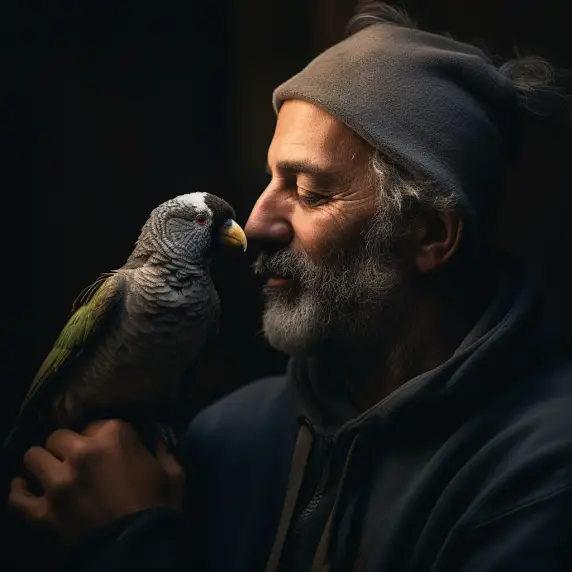
Birds, just like humans, have a wide range of emotions. To strengthen your bond and establish trust, it’s crucial to understand these emotions and interpret them correctly. Here are some emotions your bird may display and how to interpret them:
Signs Your Bird Is Happy
A happy bird is likely to be active, and playful, and will show interest in its surroundings. Singing, talking, and chirping are all vocal indications of a happy bird. You might also notice your bird preening and taking care of its feathers, which is a good sign. Eating well is another indicator of a bird’s happiness.
Signs Your Bird Hates You
A bird might not “hate” you in the way humans understand hate, but it can certainly show signs of discomfort or fear around you. If your bird is consistently avoiding you, shows aggressive behavior such as biting or lunging, or screams when you approach, it may indicate that your bird is uncomfortable around you.
How to Know if a Parrot Is Angry
An angry parrot might display aggressive behavior, like nipping, growling, or lunging. Other signs could include ruffled feathers, a flared tail, and a fixed, intense gaze. Understanding these signs can help prevent negative interactions and build healthier relationships.
How to Tell if Your Budgie Doesn’t Like You
Budgies are social birds and generally have a pleasant demeanor. If your budgie avoids you, flies away when you approach or displays aggressive behavior, it might indicate discomfort or fear.
Also, a stressed budgie might exhibit behaviors like feather plucking, a change in eating habits, or silence, which is unusual for these chatty birds. Recognizing these signs early and addressing the issues can help in building trust.
Bird Vocalization: Trust through Sounds and Songs
Birds have an incredible range of sounds and songs they use for communication. Different vocalizations can convey distinct emotions and messages. When your bird trusts you, it might display the following vocal signals:
Happy Chirping and Singing
Birds are known for their beautiful songs and cheerful chirping. These vocalizations, especially when varied and melodious, often indicate a happy, content bird. If your bird is happily singing or chirping in your presence, it’s a strong sign of trust.
Talking and Mimicry
Parrots and other birds capable of mimicry often learn to reproduce sounds or words that are frequently heard. If your bird starts to mimic your voice or sounds it hears when you’re around, it is not only a sign of trust but also a sign of social bonding.
They wouldn’t invest their time and energy in learning and reproducing these sounds if they didn’t trust and care for you.
Quiet Purring Sounds
Birds don’t purr like cats, but some species make a low, rhythmic, purring-like sound, which can signify contentment and relaxation. If your bird makes this sound when you’re interacting with them, it can be a sign of trust and comfort in your presence.
Bonding Rituals and Trust-Building Activities
Bonding with your bird is a two-way process. It requires understanding, patience, and consistency. Observing the following bonding rituals can indicate trust between you and your bird, and practicing trust-building activities can help deepen your bond:
Mutual Preening
Preening is a personal, intimate act for birds. If your bird allows you to gently preen its feathers or tries to preen you, it’s a clear sign they trust you. Always be gentle and respect their comfort zones during these sessions.
Sharing Toys
Birds can be possessive about their toys. If your bird willingly shares its toys with you or engages in play when you introduce a new toy, it is a good sign of trust. Always ensure the toys are safe and suitable for your bird’s size and species.
Interactive Play
Birds are intelligent creatures that require mental stimulation. Engaging your bird in interactive play such as puzzle-solving or training for simple tricks can foster trust. If your bird is eager to participate, it’s a sign they trust your guidance.
How to Get Your Bird to Trust You
Trust is earned, not given. Building trust with your bird requires time and patience. Start by spending quality time with your bird, respecting its boundaries, and providing consistent, positive reinforcement. Feed them by hand, respond to their vocalizations, and maintain a calm and stable environment.
How to Get Your Bird to Let You Pet It
Birds, especially those not hand-raised, might be apprehensive about physical touch initially. To encourage your bird to let you pet it, start by offering your finger as a perch. Once they’re comfortable with this, you can slowly introduce gentle strokes.
Always move slowly, watch for their comfort signals, and never force your bird if it seems stressed or scared. This trust-building process can take time but is rewarding in the end.
Navigating Complex Bird Relationships
Birds, like humans, can have complex emotions and relationships with their human caretakers. Understanding these can significantly enhance your bird’s quality of life and your mutual bond:
How to Know If a Parrot Hates You
Identifying when a bird dislikes you can be challenging, but certain signs indicate a lack of trust or negative feelings. If a parrot tries to avoid you, shows aggressive body language, or screams excessively when you are present, these might suggest the bird is uncomfortable with you.
In such cases, it’s crucial to assess your interaction methods and environment and make necessary changes to foster a better bond.
Does My Bird Love Me Quiz
While there’s no foolproof quiz to determine a bird’s affection towards you, understanding their behaviors can give a good indication. Does your bird happily greet you? Is it comfortable preening around you or eating from your hand? Does it mimic your sounds or engage in interactive play with you?
Positive responses to these observations likely indicate your bird has a strong affection for you. Remember, each bird is unique, and understanding them might require a personalized approach.
When Trust is Broken: Recognizing and Repairing Trust Issues
Even in the strongest relationships, trust can sometimes be damaged. Recognizing this and taking steps to repair it is key to maintaining a happy, healthy bond with your bird:
Recognizing Broken Trust
If a previously friendly bird becomes distant or aggressive, or if it starts displaying anxious behaviors, trust may have been broken. This could happen for various reasons, such as changes in the environment, a traumatic event, or an inconsistent routine.
Repairing Trust Issues
Regaining your bird’s trust may take time and patience, but with a consistent, caring approach, it’s entirely possible. Here are some steps you can take:
- Consistency: Birds thrive on routine. Maintain a regular schedule for feeding, playtime, and rest.
- Positive Reinforcement: Reward your bird with treats or affection when it displays positive behaviors towards you.
- Respect Boundaries: Allow your bird to come to you on its terms. Don’t force interaction.
- Comfortable Environment: Create a safe, comfortable environment for your bird, considering factors like cage size, placement, and access to toys and perches.
Remember, every bird is different, and rebuilding trust may take time. It’s important to remain patient and gentle throughout this process.
Frequently Asked Questions
In this section, we’ll tackle some commonly asked questions about bird behavior and trust.
How do you tell a bird you are friendly?
There are several ways to convey friendliness to a bird:
- Consistent and Gentle Interactions: Regular, calm interactions will help the bird understand you are not a threat.
- Feeding: Offering treats from your hand can help build a bond of trust.
- Body Language: Birds are very aware of body language. Avoid sudden movements and always approach your bird in a non-threatening manner.
How do I know if my bird is happy to see me?
Some signs your bird is happy to see you include:
- Vocalizing or Singing: Many birds express their happiness through noise.
- Excited Movement: Your bird might start moving around excitedly in its cage when it sees you.
- Preening: If your bird starts to preen when you’re around, this can be a sign of happiness and comfort.
How do birds tell you they love you?
Birds show their affection in various ways:
- Cuddling: If your bird cuddles with you, this is a strong sign of affection.
- Mutual Preening: Your bird may try to groom you, which is a sign of affection in the bird world.
- Feeding: In the wild, birds will often feed their loved ones. If your bird tries to feed you, this could be a sign of love.
Do birds pick a favorite person?
Yes, birds can form very strong bonds with people and often have a ‘favorite’ person they’re more comfortable with. This can be due to a variety of factors, including who spends the most time with the bird, who feeds the bird, and even who the bird views as the ‘leader’ of the ‘flock.’
Final Thoughts
Recognizing the signs your bird trusts you is a fulfilling part of bird ownership. It’s a clear indicator of the bond you’ve developed with your feathered friend. Remember, trust is built over time through consistency, kindness, and understanding.
It’s about creating a safe and comfortable environment where your bird feels secure. It’s also about understanding their unique behaviors and responding to them appropriately.
Keep in mind that every bird has its personality, and building trust can take time, patience, and a lot of love. Your bird may show one or all of these signs, or they may show their trust in their unique way.
As we conclude, we hope this guide has provided insightful and helpful information. With time and patience, you can deepen your bond and enjoy the love and companionship of your bird for many years to come.
Remember to always treat your feathered friend with kindness and respect, and you will be rewarded with trust and affection in return.
References:
- “Signs Your Bird Trusts You” – ZuPreem
- “Signs Your Bird Trusts You” – Bird Watching Buzz
- “Signs Your Bird Trusts You” – Pet Keen
- “Decoding Signs Your Bird Trusts You to Deepen Your Bond” – LoveToKnow Pets

